SUMMARY
This is AI generated summarization, which may have errors. For context, always refer to the full article.
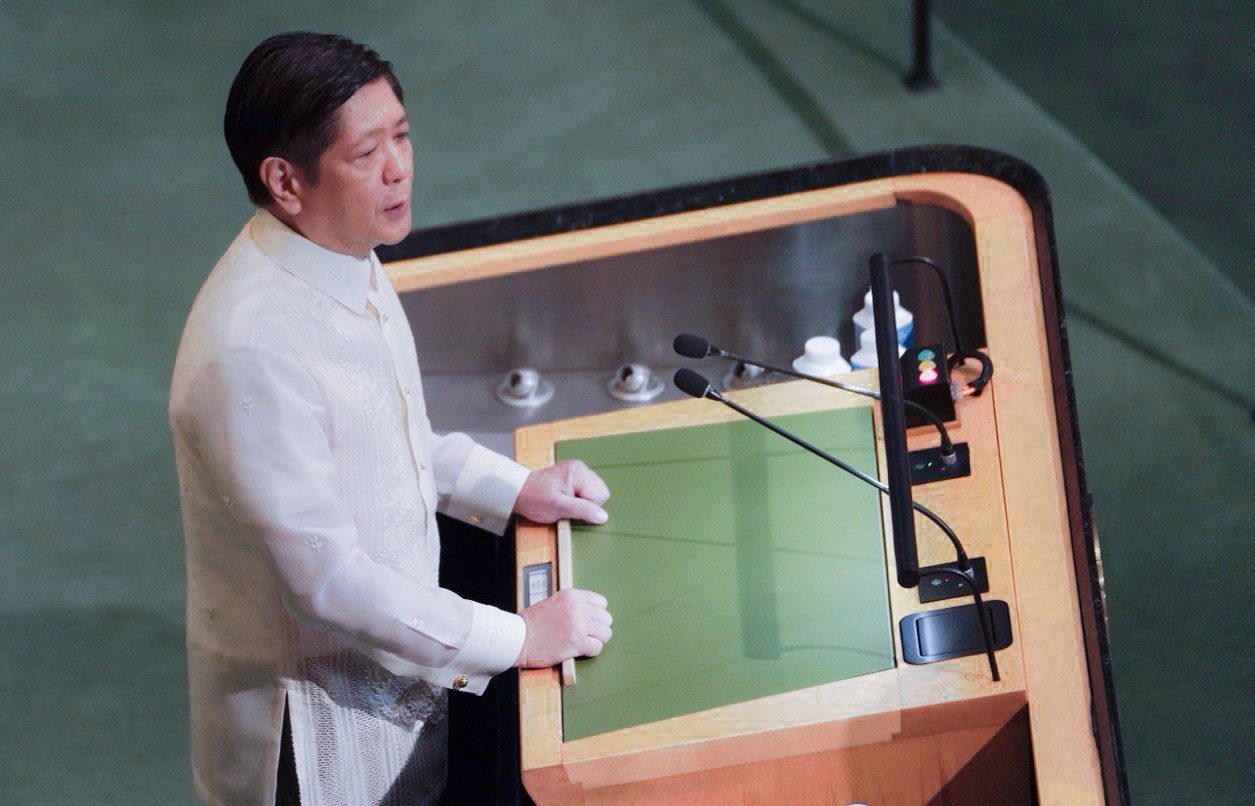
NEW YORK, USA – Dressed in a slim-fit barong and introducing himself as “Ferdinand Marcos” – sans the suffix – President Ferdinand Marcos Jr made his first engagement with the international community on Tuesday, September 20 (early Wednesday, September 21 in Manila), before the United Nations General Assembly (UNGA) high-level General Debates.
In a speech that lasted over 20 minutes, Marcos said and asserted a lot, but without ruffling anyone’s feathers.

He invoked the importance of a “rules-based international order that is governed by international law and informed by the principles of equity and of justice” and singled out the 1982 United Nations Convention on the Law of the Sea.
He spoke of the threat of climate change and “historical injustice” – of how the biggest pollutants suffer the least while the “least responsible suffer the most.” Marcos warned of “the development of advanced technologies” that could solve existing problems but also “disrupt our political and social orders,” without diving into details.
Marcos also made a pitch for the Philippines to be elected as a non-permanent member of the powerful UN Security Council, which he said should be “reformed and more inclusive.” It’s a criticism that his immediate predecessor, former president Rodrigo Duterte, also put forward the last time he addressed the UNGA.
The Philippine President, who has appointed himself agriculture chief, also highlighted sustainability and food security, referencing the breakdowns in world food supply chains as a result of “the conflict in Ukraine.”
“With steady investment in food [security], public health, education, and other social services, we expect to become a moderately prosperous country by 2040. I am confident that we will achieve this vision,” he said, echoing his earlier goal for the Philippines to reach upper-middle income status by 2028 or the end of his presidency.
But there were things left unsaid: the 2016 Hague ruling that validated the country’s rights in the West Philippine Sea, specifics in the call for richer nations to take the cudgels in the climate crisis, and reforms in the Security Council.
And of course there was that – his appearance at the UN Headquarters came 36 years after Filipinos booted out his dictator-father and restored democracy, and 50 years after he put the Philippines under Martial Law.

Protest at the consulate
That a Marcos was back in power, and that his address before the UNGA coincided with the anniversary of the declaration of Martial Law, was a context that progressive groups and people based in New York could not let pass.
At noon on September 20, hours before Marcos’ address, a group of Filipinos, Filipino-Americans, and other nationals sympathetic to their cause gathered in front of the Philippine Consulate in New York – a building that itself is a reminder of Marcos’ rule. Inside the building is a plaque that says it is “inspired and dedicated by” former first lady Imelda Marcos, the President’s mother and a respondent in human rights abuse and theft cases filed against the family in the aftermath of the 1986 People Power revolution.
Outside, water bottles and snacks were handed out as familiar chants filled a small portion of 5th Avenue in Manhattan: “Marcos, Marcos, magnanakaw (Marcos, Marcos, a thief!)” alternated with angry chants of “Marcos, Hitler, diktador, tuta.” (Marcos, Hitler, dictator, lapdog.)
A handful also showed up wearing Uniteam shirts and bearing placards that spoke of their love and support for Marcos and his 2022 running mate, Vice President Sara Duterte. The small pro-Marcos group left shortly after the bigger anti-Marcos crowd started its formal program.

“Nandito tayo para bigyan boses, lalo na yung mga survivors ng Martial Law (We’re here to give a voice to… especially those who survived Martial Law),” said Mike Legaspi, an organizer of Migrante USA.
The crowd was diverse – three older individuals brought with them a banner that said “Veterans for Peace.” Younger people walked purposefully within the area, wearing shirts and face masks that bore the words “Serve The People.” At least one older woman – who looked to be in her 70s – quietly walked around holding a banner that read “Never Again.” She only smiled politely when journalists tried to talk to her, but did not tire in holding up her cardboard placard.
The Marcoses and the US are inextricably linked.

The US, until it didn’t, supported the regime of the first Marcos president. It was also the US that helped them flee the Philippines and which hosted them while in exile in Hawaii. It’s in the US, too, where the Marcoses faced lawsuits over the human rights abuses and corruption that they and their cronies had committed. The President, in fact, faced a contempt order in relation to these cases, but the US has granted him diplomatic immunity in deference to his office.
President Marcos made no reference to any of this. He has, after all, said this several times in different ways: “It is not the time to look back at the past. It is now time to look to the future.”
As he addressed his fellow heads of state in New York, Marcos repeated his mantra during the election campaign: unity.
“The peoples of the world look to their leaders, to us, to make into reality these aspirations for our future. We must not fail them. And if we stand together, we will not fail them. If we stand together, we can only succeed. Let us dream, let us work for those successes for all our nations, united,” he said.
Marcos is in New York until September 23 and is expected to hold bilateral meetings with fellow world leaders, as well as grace meetings and summits with business leaders and organizations such as the Asia Society. – Rappler.com
Add a comment
How does this make you feel?
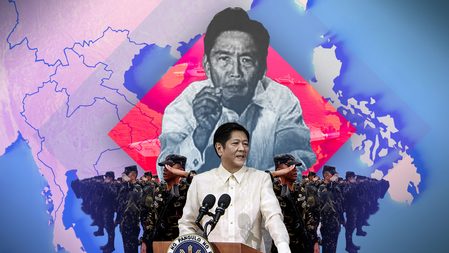
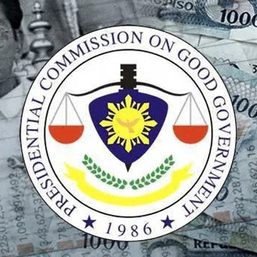
![[Newspoint] The lucky one](https://www.rappler.com/tachyon/2024/04/lucky-one-april-18-2024.jpg?resize=257%2C257&crop=536px%2C0px%2C1080px%2C1080px)
![[Just Saying] Marcos: A flat response, a missed opportunity](https://www.rappler.com/tachyon/2024/04/tl-marcos-flat-response-april-16-2024.jpg?resize=257%2C257&crop=277px%2C0px%2C720px%2C720px)
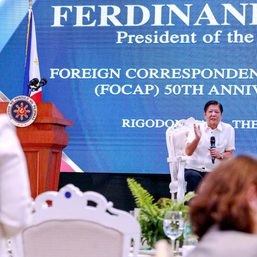
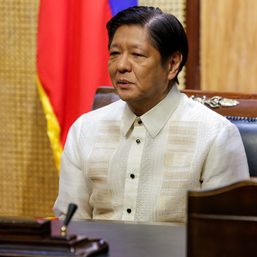
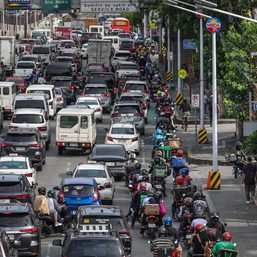
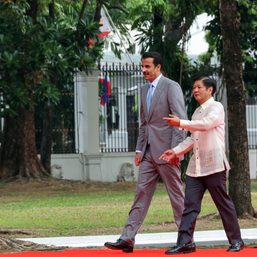
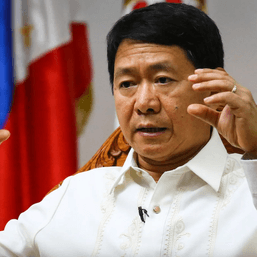
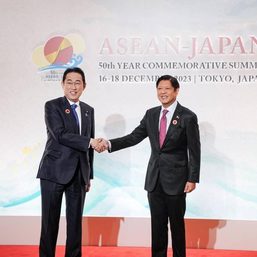
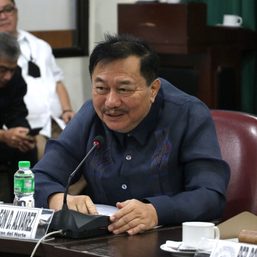
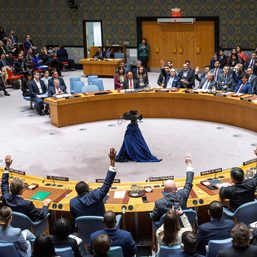
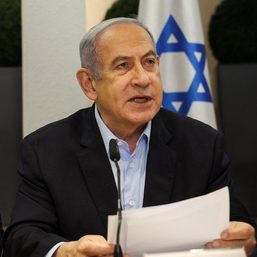
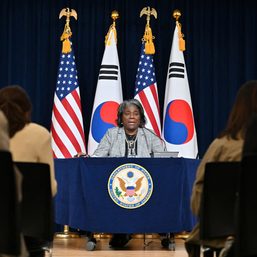
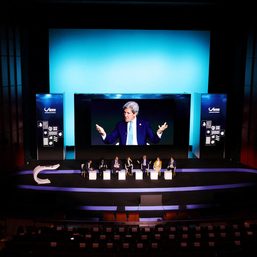
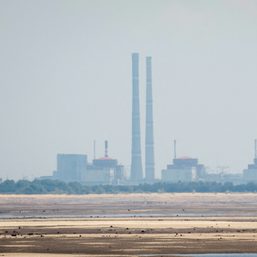
There are no comments yet. Add your comment to start the conversation.